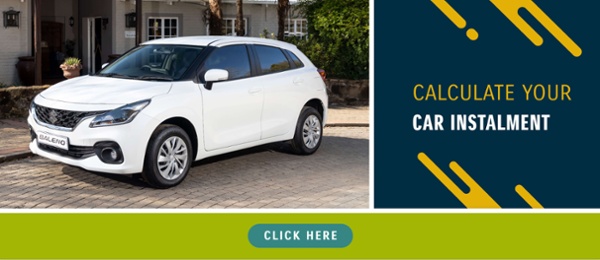Buying a new car is an exciting experience and, because of the financial commitment that goes with it, a daunting one as well. However, doing the preparation and right research will ensure it is a painless procedure.
Obviously, the simplest way to buy a car is to stump up the cash–but very few people are in a position to be able to do that, so a finance package will be necessary.
The first step is to analyse what you are able to afford each month, remembering the cost of ownership goes beyond the monthly repayments and you will have to factor in the insurance, annual licence fees, and fuel – see https://www.suzukiauto.co.za/suzuki-car-ownership-calculator.
You should also check your credit score–the bank certainly will–and if you need to improve your rating here’s how: How to improve your credit score rating.
Do your homework and do not get carried away by emotion. Understand the various financial options available to you and compare different cars in the same affordability bracket–check the specifications, especially those relating to safety and look at the manufacturer warranty and service plans.
When it comes to calculating how much you can afford for your dream car, the financial planners recommend you do not commit more than 20% of your monthly take-home income towards car expenses and certainly you should be under 40% of income in total debt repayments.
Anything over that is likely to throw up a red flag that may see your loan application declined.
Try and make the largest possible deposit or down payment you can afford as this will reduce the monthly repayments.
In order to see if you qualify for the loan you are requesting, the financial institution will examine your income, your monthly living expenses, and any other debt you may have (credit card, home loan etc) as well as looking at who may be financially dependent on you.
Almost all auto dealers in South Africa have direct links either through their own credit company or via one of the banks, so your application and approval can be done in a matter of minutes and all you need to take with you to the dealership is:
- Your SA ID card or green barcoded ID. If you are a foreign national, your country of origin’s ID and relevant work permit or visa will be required.
- Proof of residence–a utility bill or similar bill statement that is addressed and mailed to your residential premises.
- Proof of income. You will need your latest payslip (last three if you are a commission earner) or your last three months’ bank statements.
The dealership and its financial team will do their own affordability assessment with you to finalise the deal based on the option you have chosen.
The two major considerations for private buyers are whether to go for an instalment sale or a lease. With the former, you own the car outright once the last monthly payment has been made. In the case of the latter, at the end of the term you can either negotiate to take ownership, or return the car and set up a new lease and drive away in a brand new vehicle.
Balloon payment
You may be offered a ‘balloon payment’ option in which a portion of the purchase price is set aside to lower the monthly repayments.
You will have to pay this lump sum at the end of the contract so it is vital that you actually set aside funds every month in some sort of savings to meet this debt.
Guaranteed future value
Guaranteed future value (GFV) or Residual Value, is a calculation that determines what the value of the car will be in three, four, or five years, depending on how long you want to finance your vehicle.
While it does give you a clear indication of the future value of the car, it will come with a number of conditions–the annual maximum mileage will be stipulated along with maintenance conditions. It will also have to be returned to the dealer at the end of the term in good condition.
Damaged upholstery, nicks and dents etc will cost you as will exceeding the stipulated mileage.
Insurance
Whatever financial option you choose, the bank will not authorise it without there being a comprehensive insurance policy on the car in place.
Insurance costs fluctuate wildly from insurance provider to insurance provider and it is well worth your while to do some online comparisons to determine the best one for you that fits within your monthly budget–again you can likely finalise this insurance at the dealer when you take delivery of the (now licensed) vehicle.
In all of this, be disciplined and stick to your budget–do not allow some silver-tongued salesperson to persuade you into taking all the ‘nice-to-have’ options.
Calculate the cost for a new car on our car instalment calculator.

%20(1)-1.png)
![The unexpected advantages of buying a small car [infographic]](https://blog.suzukiauto.co.za/hubfs/Ignis%20May%202020%20Product%20Shots/Ignis%20-%204856.png)
